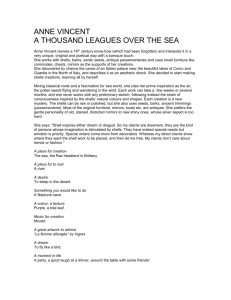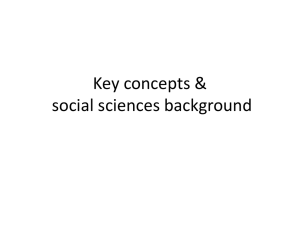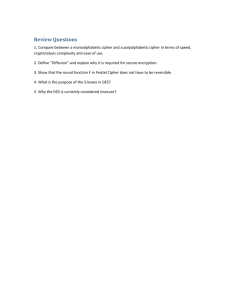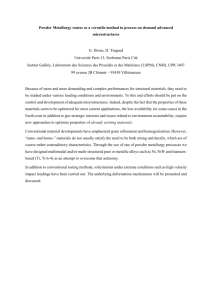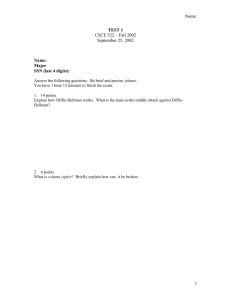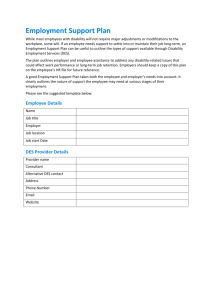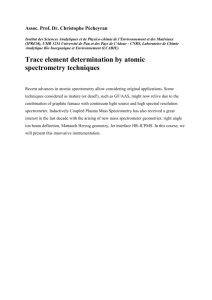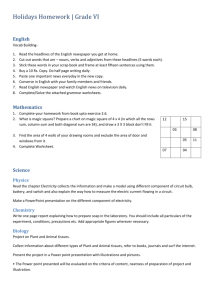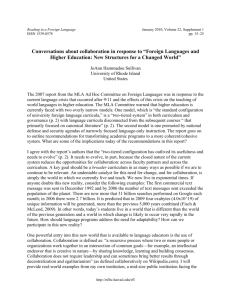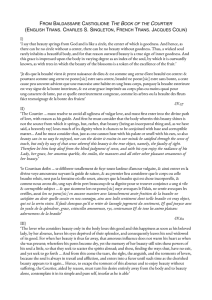David the Teenage Tycoon: Reading Comprehension Exercise
advertisement
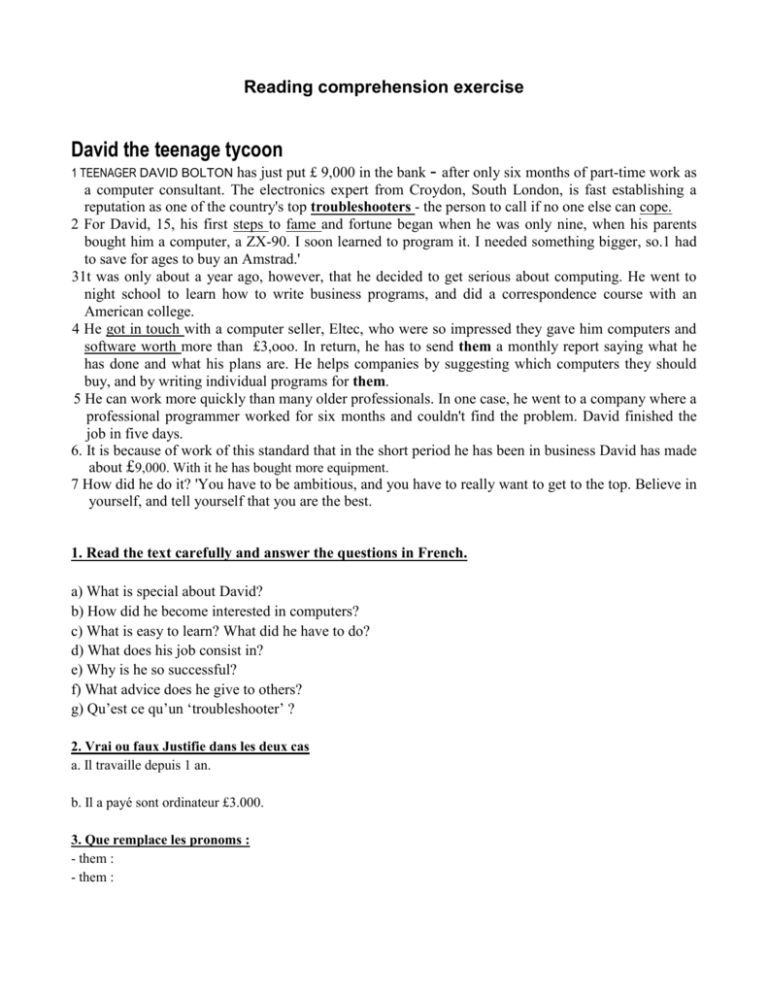
Reading comprehension exercise David the teenage tycoon just put £ 9,000 in the bank - after only six months of part-time work as a computer consultant. The electronics expert from Croydon, South London, is fast establishing a reputation as one of the country's top troubleshooters - the person to call if no one else can cope. 2 For David, 15, his first steps to fame and fortune began when he was only nine, when his parents bought him a computer, a ZX-90. I soon learned to program it. I needed something bigger, so.1 had to save for ages to buy an Amstrad.' 31t was only about a year ago, however, that he decided to get serious about computing. He went to night school to learn how to write business programs, and did a correspondence course with an American college. 4 He got in touch with a computer seller, Eltec, who were so impressed they gave him computers and software worth more than £3,ooo. In return, he has to send them a monthly report saying what he has done and what his plans are. He helps companies by suggesting which computers they should buy, and by writing individual programs for them. 5 He can work more quickly than many older professionals. In one case, he went to a company where a professional programmer worked for six months and couldn't find the problem. David finished the job in five days. 6. It is because of work of this standard that in the short period he has been in business David has made about £9,000. With it he has bought more equipment. 7 How did he do it? 'You have to be ambitious, and you have to really want to get to the top. Believe in yourself, and tell yourself that you are the best. 1 TEENAGER DAVID BOLTON has 1. Read the text carefully and answer the questions in French. a) What is special about David? b) How did he become interested in computers? c) What is easy to learn? What did he have to do? d) What does his job consist in? e) Why is he so successful? f) What advice does he give to others? g) Qu’est ce qu’un ‘troubleshooter’ ? 2. Vrai ou faux Justifie dans les deux cas a. Il travaille depuis 1 an. b. Il a payé sont ordinateur £3.000. 3. Que remplace les pronoms : - them : - them : 4. Here are the answers to some questions. Work out the questions. 1. Nine thousand pounds. 2. A ZX-90 3. Because he wanted to buy an Amstrad computer. 4. By suggesting which computers they should buy, by writing programs for them. 5. More equipment. CORRECTIF 1. Read the text carefully and answer the questions in French. a) What is special about David? Il n’a que 15 ans, mais est déjà un pro de l’informatique. Il peut débugger de nombreux problèmes, là où des spécialistes plus âgés coincent. - il est plus rapide que beaucoup de professionnels plus âgés. b) How did he become interested in computers? Il a reçu un ordinateur pour ses 9 ans. Il a très vite été intéressé par la programmation. c) What is easy to learn? What did he have to do? Il a suivi des cours du soir et a eu des cours par correspondance avec un collège américain d) What does his job consist in? - Il doit faire un rapport mensuel de ce qu’il a fait et de ses plans - Il aide les compagnies en suggérant quel ordinateur acheter et en écrivant des programmes spécifiques pour eux. e) Why is he so successful? - il peut travailler plus vite que des professionnels plus âgés et résout des problèmes que d’autres n’arrivent pas à solutionner. f) What advice does he give to others? - il faut être ambitieux, croire en soi, qu’on est le meilleur g) Qu’est ce qu’un ‘troubleshooter’ ? quelqu’un qu’on appelle en dernier recours quand plus personne d’autre ne peut résoudre le problème. 2. Vrai ou faux Justifie dans les deux cas a. Il travaille depuis 1 an. Faux, il a commencé sérieusement à apprendre la programmation il y a un an, il travaille depuis 6 mois. b. Il a payé sont ordinateur £3.000. Faux, c’est Eltec qui lui a offert son matériel qui vaut £3.000. 3. Que remplace les pronoms : - them : Eltec - them : les compagnies pour lesquels il travaille, il fait des programmes spécifiques 4. Here are the answers to some questions. Work out the questions. 1. How much money has he earned so far? ou How much money has David put in the bank? - Nine thousand pounds. 2. What kind of computer did he get first? ou What was his first computer? - A ZX-90 3. Why did he have to save a lot of money? Because he wanted to buy an Amstrad computer. 4. How does David help companies? By suggesting which computers they should buy, by writing programs for them. 5. How does he spend his money ? What does he spend his money on? What does he buy with the money he earns? - More equipment.
